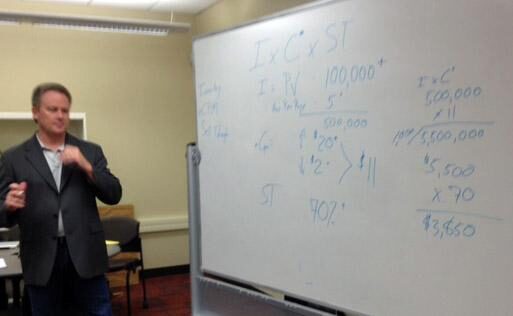When I started Baristanet, one of the first hyperlocal news sites in the country, in 2004, I didn’t realize I was starting a new industry.
I barely understood that I was starting a new business. I didn’t have a business plan. And while I’d sketched out page designs with places for ads, and had vague hopes about what they might be worth, there was no science behind it — and it took months before anybody handed me a check.
The editorial vision came easily. But the business side lurched along by trial and error. As for a prevailing business philosophy, I’d say our operating credo could best be summed up by Charlemagne’s line from the musical Pippin: “It’s smarter to be lucky than it’s lucky to be smart.” And lucky we were — especially in finding a passionate and talented sales rep willing to work for commission.
Over the years, hundreds of indie online publishers have cropped up, many drawing on Baristanet for inspiration. Most, like us, have lurched along by trial and error. But many have been less lucky. All over the country, there are editors running hyperlocal sites like Sisyphus, picking up the stone and pushing it up the hill each day. They never find a salesperson and thus never get enough revenue to pay a staff — or take a vacation.
This is a problem. Entrepreneurial news sites are an important development in the news ecosystem. They represent a career opportunity for seasoned journalists downsized by mainstream media, and a boon for communities that desperately need a digital town square. But all too often, the people running them are burning themselves out.
Two years ago, I was lucky enough to be included in something called Super Camp, a project of the Patterson Foundation and the Knight Digital Media Center to provide an intensive three-day business training for 12 hyperlocal publishers. The following year, the project was expanded and renamed CJET — Community Journalism Entrepreneur Training. And this May, nineteen publishers in New Jersey were lucky to be included in the first CJET training ever given for publishers bound by a common geography. The NJ News Commons hosted the event, which was funded by the Patterson and Dodge foundations.
For three days — including two of the most beautiful spring days of the season — the participants sat inside a windowless room, where they heard presentations on sales, hiring, sell-through rates, CPM’s — and other terms that they generally don’t teach in journalism school. Or at least that didn’t used to be taught in journalism schools. They were lectured on the value of learning to use spreadsheets, and told that they would have to craft a 100-day plan and present it on the last day. At one point, Rusty Coats, who organized the curriculum, filled a white board with a formula that looked like it was pulled from “Good Will Hunting.” Nobody ran shrieking from the room.
In the afternoons, participants broke into small groups and in the evenings, almost everybody stayed in a nearby Holiday Inn. People made sacrifices. The mother of a newborn used my office to pump breast milk; another participant spent his 50th birthday with us. One fellow stayed up to 4:30 a.m. on Saturday morning working to hone his 100-day plan.
It was in the small group sessions, which most of the groups took outside, where the real magic happened. Not only did every participant get to explain their business situation to their peers and their coach, and begin the work on their plans, they became part of a process, like group therapy, which allowed them to impart their own wisdom. In doing so, they discovered that they are not alone, even if it often feels that way.
“For me, CJET wasn’t so much about an ‘aha’ moment as about a realization that the biz side is as vital as the content side, and needs just as much attention,’” Kevin Coughlin, publisher of Morristown Green, told me in a note afterwards. “And it was nice meeting kindred spirits who are struggling with similar issues. I suspect some fruitful partnerships may result.”
Janine Torsiello of Morris Beats, said her “aha” moment was realizing that bringing readers and advertisers together was not a betrayal of the values of journalism, but another service she can offer.
One of the most gratifying things for me, as a host of the event, was seeing the 19 publishers — who kept checking their email and their websites the first day of the training — were finally able to close their laptops and listen to their peers’ 100-day plans on the last day.
As with many experiences where you pack people in tight quarters for several days, and keep them away from their families, many of the most important connections were forged over coffee, or in the hallway, or — in our case — in the Ruby Lounge at the Totowa Holiday Inn. This was where people told stories about their divorces and their children and their publishing nemeses. And where people exchanged business cards and ideas, and in one case created a new business partnership.
And the conversation goes on, in a Facebook group created for participants and in a reunion planned for early fall, when we see what the 100-day plans have wrought.
Debbie Galant is director of the NJ News Commons, a project of the School of the Communication and Media at Montclair State University. It resides within the Center for Cooperative Media and is funded, in part, by contributions of the Geraldine R. Dodge Foundation. She founded Baristanet in 2004.


